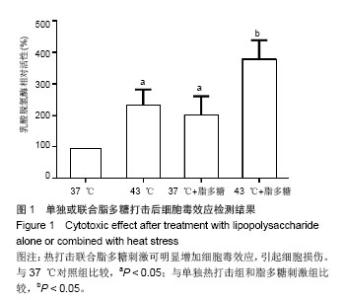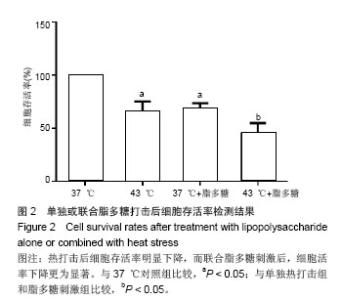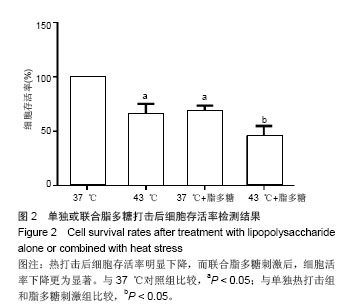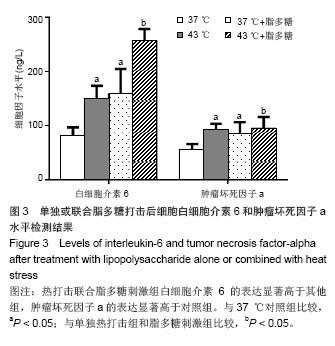| [1]Borregaard L, Lyngsoe BK, Fenger-Eriksen C,et al.Acute liver failure following heat stroke after participating in a running event.Ugeskr Laeger. 2014;176(28):V01130075.
[2]Glazer JL. Management of heatstroke and heat exhaustion. Am Fam Physician.200 5;71(11):2133-2140.
[3]Lugo-Amador NM, Rothenhaus T, Moyer P.Heat-related illness. Emerg Med Clin N Am.2004; 22,315-327.
[4]Bouchama A,Knochel JP.Heat stroke.N Engl J Med.2002; 346(25) :1978-1988.
[5]刘志锋,苏磊.胃肠功能障碍与炎症反应在中暑发病机制中的作用[J].广东医学,2010,31(6):787-788.
[6]Bouchama A, Roberts F, Mohanna AL, et al. Inflammatory, hemostatic, and clinical changes in a baboon experimental model for heatstroke.J Appl Physiol.2005;98: 697-705.
[7]Eshel GM, Safar P, Stezoski W. The role of the gut in the pathogenesis of death due to hyperthermia.Am J Forensic M ed Pathol.2001;22 (1):100-104.
[8]Leon LR, Blaha MD, DuBose DA. Time course of cytokine, corticosterone, and tissue injury responses in mice during heat strain recovery. J App l Phys iol.2006;100(4):1400-1409.
[9]苏磊.重症中暑防治回顾与启示[J].解放军医学杂志,2011,36(9): 883-885.
[10]Gathiram P, Gaffin SL, Brock-Utne JG, et al. Time course of endotoxemia and cardiovascular changes in heat-stressed primates. Aviat Space Environ Med.1987;58:1071.
[11]Shapiro Y, Alkan M, Epstein Y, et al. Increase in rat intestinal permeability to endotoxin during hyperthermia. Eur J Appl Physiol Occup Physiol.1986;55:410.
[12]Hong JY, Lai YC, Chang CY, et al. Successful Treatment of Severe Heatstroke With Therapeutic Hypothermia by a Noninvasive External Cooling System. Ann Emerg Med. 2012; 59(6):491-493.
[13]Horseman MA, Rather-Conally J, Saavedra C,et al. A Case of Severe Heatstroke and Review of Pathophysiology, Clinical Presentation, and Treatment.J Intensive Care Med. 2013; 28(6):334-40.
[14]Bouchama A, Roberts G, Al Mohanna F, et al. Inflammatory, hemostatic, and clinical changes in a baboon experimental model for heatstroke. J Appl Physiol .2005;98:697.
[15]Minnema MC, Chang AC, Jansen PM, et al. Recombinant human antithrombin III improves survival and attenuates inflammatory responses in baboons lethally challenged with Escherichia coli. Blood 2000;95:11-17.
[16]Liu ZF, Liu JH, Liu YW,et al. Proteomic Analysis and Identification of Intestinal FBP as a Predictor of Gut Dysfunction During Heatstroke in Mice. J SURG RES.2012; 173:332-340.
[17]Tong HS, Liu YS, Wen Q,et al. Serum procalcitonin predicting mortality in exertional heatstroke. Emerg Med J.2011; 29(2): 113-117.
[18]Pan Z, Shao Y, Dong W, et al. Xuebijing attenuates hypotension through the upregulation of angiotensin Ⅱ type 1 receptor associated protein 1 in rats suffering from heat stroke. Int J Mol Med. 2014;34(6):1699-705.
[19]Shapiro Y , Alkan M, Epstein Y , et al. Increase in rat intestinal permeability to endotox in during hyperthermia. Eur J App l Physiol Occup Physio.1986;55 (4):410-412.
[20]Gathiram P, Gaffin SL , Brockutne JG, et al. Time course of endotoxemia and cardiovascular changes in heat-stressed primates. Aviat Space Environ Med.1987; 58(11) :1071- 1074.
[21]Moseley PL, Gape NC, Wallen ES, et al.Thermal stress induces epithelial permeability. Am J Physiol Cell Physiol. 1994;267(2):C425- C434.
[22]Lambert GP,Gisolfic V,Berg DJ,et a l. Molecular biology of thermoregulation selected contribution: hyperthermia- induced intestinal permeability and the role of oxidative and nitrosative stress. J App l Physiol.2002;92(4):1750-1761.
[23]Vanuytsel T, Vanormelingen C, Vanheel H,et al. From intestinal permeability to dysmotility: the biobreeding rat as a model for functional gastrointestinal disorders. PLoS One.2014;9(10):e111132.
[24]刘志锋,曾平,刘亚伟,等.脂多糖和热打击联合作用对人肠上皮细胞细胞骨架的影响[J].广东医学,2010,31(18):2346-2348.
[25]Bouchama A, al Hussein K, Adra C, et al. Distribution of peripheral blood leukocytes in acute heatstroke. J Appl Physiol. 1992;73 (2):405- 409.
[26]Lu KC, Wang JY, Lin SH, et al. Role of circulating cytokines and chemokines in exertional heatstroke. Crit Care Med.2004; 32 (2):399-403.
[27]Hammami MM, Bouchama A, Al-Sedairy S,et al. Concentations of soluble tumor necrosis factor and interleukin -6 receptors in heats troke and heatstress. Crit Care Med. 1997;25(8):1314-1319 . |





